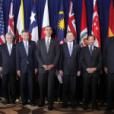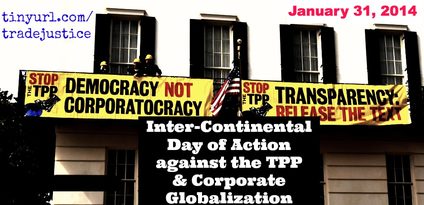TPP treaty nearly ready to roll over us, says Oz minister
Posted on January 17, 2014By Richard Chirgwin, 12th January 2014 .
An Australian government minister has said he expects the controversial Trans-Pacific Partnership agreement to be finalised soon.
Talks on the treaty – which has been criticised for following a corporate America agenda on issues like patents, copyright law, and investor-state dispute settlement – stalled late last year.
At the time, the US negotiator noted that the Salt Lake City talks “were not progressing according to plan”.











